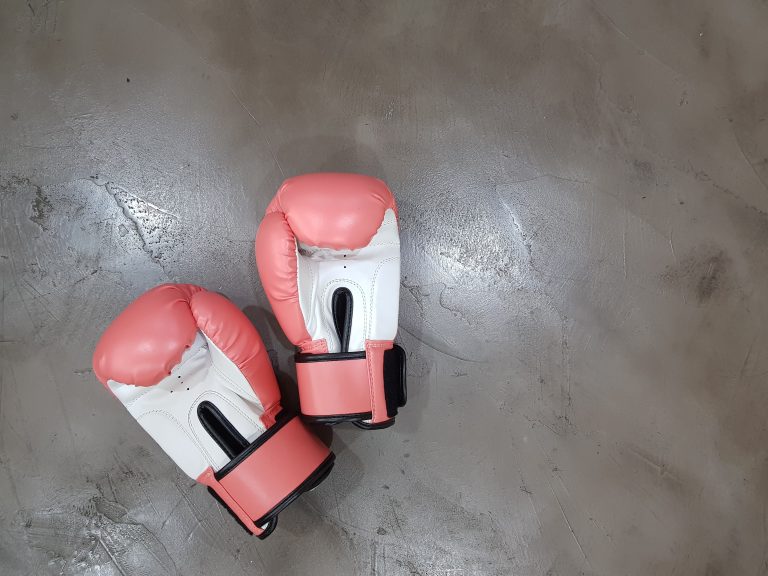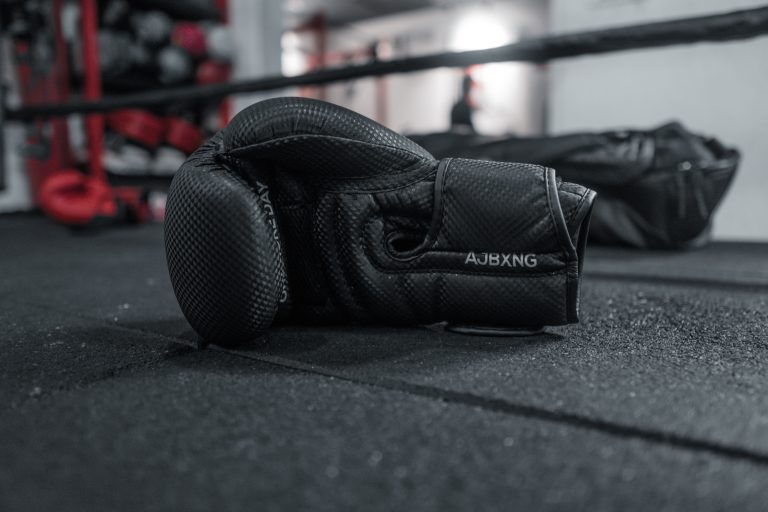How Can We Learn Karate at Home
Karate is a popular form of martial arts that originated from Japan. It is a form of unarmed combat focused on using one’s own body for self-defense. Over the years, karate has gained popularity across the world, and many people look to learn this art form. However, not everyone has access to a karate school or instructor. Fortunately, with advancements in technology and the availability of online resources, anyone can learn karate from the comfort of their home. In this blog post, we will discuss how you can learn karate at home.
1. Find the Right Resources
The first step towards learning karate at home is to find the right resources. There are several online courses, YouTube videos, and instructional books available that can help you learn karate. Before you start, take the time to research and find resources that suit your learning style and level. Look for resources that focus on teaching the basics, as it is essential to have a solid foundation to progress in karate. It is also essential to ensure that the resources are credible and taught by certified instructors.
2. Create a Safe Environment
Before you start practicing karate at home, it is essential to create a safe environment. Move any furniture or objects that could obstruct your movements or cause injury. Dedicating a specific area in your home for practicing karate is also recommended. This will help you focus, and you can be free from any distractions. It is also important to wear the right gear, including loose-fitting clothes that allow you to move freely and comfortable shoes.
3. Learn the Basics
Karate involves several moves, techniques, and forms. It is important to start by learning the basics before progressing to advanced forms. This will help you build a solid foundation and avoid the risk of injury. Some of the essential basics of karate include stances, punches, and kicks. Once you have mastered the basics, you can move on to learning more advanced techniques.
4. Practice Regularly
Like any other skill, learning karate requires dedication and regular practice. It is essential to set aside regular practice time, preferably every day, to help you progress. Consistency is key to mastering karate. Start with short practice sessions and gradually increase the time as you progress. It is also important to keep track of your progress regularly.
5. Find a Partner
Practicing karate alone can be challenging, especially when it comes to sparring or practicing techniques that require a partner. If you have a family member or friend interested in karate, consider learning together. Practicing with a partner can make learning more fun and exciting. You can also help each other in correcting techniques and provide motivation.
6. Join Online Communities and Forums
Joining online communities and forums can be an effective way to supplement your learning. There are several online karate communities and forums where you can interact with other karate enthusiasts and instructors. These forums offer a wealth of information, including tips, advice, and resources to help you learn karate. You can also ask for feedback on your techniques from experienced instructors or practitioners.
7. Learn from Mistakes
Learning karate can be challenging, and it is inevitable to make mistakes along the way. However, it is essential to learn from these mistakes and keep progressing. Take the time to analyze your techniques regularly and identify areas that need improvement. Accept feedback from your partner or instructor and work on improving your techniques.
FAQs on Learning Karate at Home
Karate is a martial art form that originated in Okinawa, Japan, in the early 20th century. It is an excellent way to improve physical and mental health, self-defense, and self-discipline. But due to several reasons, some people cannot attend regular karate classes, and they want to know how to learn karate at home. Here are some frequently asked questions about learning karate at home:
1. Is it possible to learn karate at home?
Yes, it is possible to learn karate at home. Many karate instructors have created online courses that you can take from the comfort of your own home. You can also find numerous videos on YouTube and other platforms with step-by-step instructions to learn karate at home. However, practicing karate at home without proper supervision could be dangerous, and it’s essential to take all necessary precautions.
2. What equipment do I need to learn karate at home?
To learn karate at home, you need a few essential items, such as:
- A training mat to practice techniques and avoid any injuries.
- A punching bag to practice various kicks and punches.
- A mirror to check your form and technique.
- A comfortable and airy place to practice.
- Comfortable clothing that allows free movement.
3. How can I get feedback on my karate techniques when learning at home?
Getting feedback is essential to learn karate techniques correctly. While learning karate at home, it is recommended to record yourself while practicing and share the videos with a qualified karate instructor who can provide feedback on your technique. Alternatively, you can also join an online karate class where you can get live feedback from an instructor.
4. How long does it take to learn karate at home?
Learning karate is a journey, and it takes time and consistent practice to master. The time it takes to learn karate at home entirely depends on individual efforts and consistency. With regular practice and dedication, you can start seeing progress within a few weeks. It takes years of practice to become a black belt, but being a black belt is not the end goal in karate. The constant practice to improve oneself is the ultimate goal in karate.
5. How can I stay motivated while learning karate at home?
Staying motivated is crucial when learning anything new, including karate. Here are some tips to stay motivated when learning karate at home:
- Set clear goals and milestones and celebrate your accomplishments.
- Practice with a friend or family member to make it more fun.
- Join a karate community or online forum and engage with other learners and instructors.
- Take breaks when needed and do not push yourself too hard.
- Remind yourself of the reasons why you want to learn karate and the benefits it brings.
6. Is it safe to learn karate at home?
While it is possible to learn karate at home, it is essential to take all necessary precautions to avoid any injuries. Ensure you have enough space to practice, a training mat to avoid any accidents, and practice with a proper technique. It is also crucial to warm up before practicing, listen to your body, and take breaks when needed.
How to Learn Karate at Home: A Step-by-Step Guide
Karate is a traditional Japanese martial art that involves striking, kicking, and grappling techniques. It is known for its emphasis on self-defense, physical fitness, and mental discipline. Many people are interested in learning karate, but are unable to attend a martial arts school due to location or financial constraints. Fortunately, there are several methods for learning karate at home. In this guide, we will take a look at some of the most effective ways to start learning karate in the comfort of your own home.
Step 1: Set Clear Goals and Objectives
Before starting your karate journey, it is important to set clear goals and objectives. What do you want to achieve through learning karate? Do you want to improve your fitness, learn self-defense techniques, or compete in tournaments? Once you have a clear idea of what you want to achieve, you can structure your training program accordingly.
Step 2: Find a Qualified Instructor
While learning karate at home may seem like a solitary activity, having a qualified instructor can be incredibly helpful. Look for an instructor who has a solid background in karate and who is willing to provide remote instruction via video or other means. Many martial arts schools now offer online instruction, and there are also many independent instructors who offer virtual training as well.
Step 3: Create a Training Space
Creating a dedicated space for your training can help you stay motivated and focused. This can be a spare room in your house, a garage, or even an outdoor space. Make sure that your training space is free of clutter and other distractions. Also, make sure that you have enough room for movements and stretching exercises.
Step 4: Invest in the Right Equipment
While karate does not require a lot of equipment, there are a few essential items that you will need. These may include a karate uniform, protective gear such as gloves and shin guards, and a punching bag or focus pads. Make sure that you invest in good quality equipment that will last for a long time.
Step 5: Follow a Structured Training Program
When learning karate at home, it is important to follow a structured training program. This will help you stay on track and progress in a systematic manner. Your instructor can help you create a training program that is tailored to your goals and objectives. Make sure that you devote enough time each week to your training program.
Step 6: Practice Consistently and Gradually Increase Intensity
As with any martial art, consistency is key to making progress in karate. Make sure that you practice consistently and focus on perfecting your technique. As you become more comfortable with the movements and exercises, gradually increase the intensity of your training. This will help you build endurance and strength over time.
Step 7: Emphasize Mental Discipline
One of the key aspects of karate is mental discipline. Make sure that you are focusing not just on physical training, but also on developing your mental resilience and discipline. Incorporate mindfulness and visualization exercises into your training program to help build mental toughness.
Step 8: Seek Feedback and Adjust Your Training Accordingly
Finally, make sure that you seek feedback from your instructor and adjust your training program accordingly. Your instructor can provide valuable insights into your technique and help you refine your movements. Don’t hesitate to ask questions and seek clarification whenever you are unsure about something.
Conclusion
Learning karate at home can be a rewarding and fulfilling experience. With the right mindset, dedication, and guidance from a qualified instructor, you can make significant progress in your karate journey without ever leaving your home. Follow the steps outlined in this guide, and you will be well on your way to becoming a skilled and disciplined karate practitioner.
Inhaltsverzeichnis






